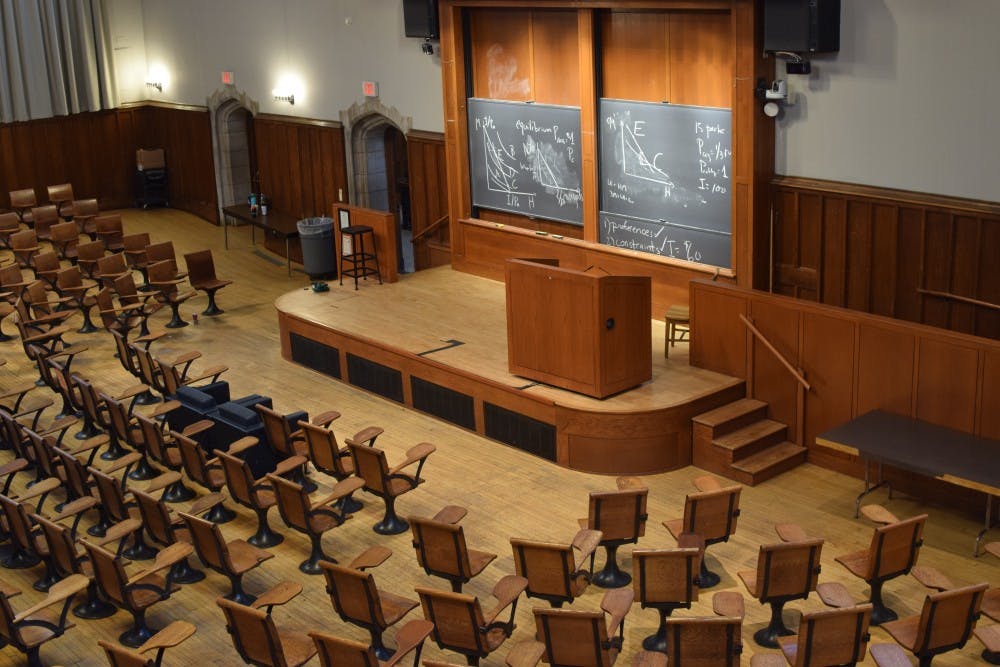Back in 2018, a fellow columnist of mine argued that the lecture system that dominates the Princeton educational experience was not working — and, more importantly, could not work. While the author suggested that there are ways to at least make them better, these improvements were, at best, remedial measures.
When I first read the article, I was skeptical. Certainly, I thought, the best university in the country must know what it’s doing. While there were statistics that showed otherwise, perhaps those statistics simply did not apply to Princeton. Having spent time at another university, I now recognize that I was wrong.
The lecture system is certainly not the best way of learning and, striking to many who believe in the doctrine of Princetonian Exceptionalism, the lecture system does not work here either. Even still, getting rid of lectures altogether would take the argument too far, as going in the complete opposite direction without careful consideration presents multiple dangers.
I spent the spring of my junior year at the University of Oxford, where the method of instruction is significantly different from the method employed at most American universities. The most important salient feature: lectures are essentially non-mandatory.
This is because the main form of instruction is the tutorial: a small group, usually a tutor with one student, but occasionally two or three, convenes periodically to discuss the paper that had been written for that week’s tutorial. This meant that rather than spending my time in lectures, as many of us do now, I was spending most of my time reading and writing papers (one to two every week) for the tutorials.
The largest benefit that this system provided me was the ability to process significant amounts of information effectively and efficiently. I also learned to think quickly. As we went over my paper in tutorial, my tutor would bring up objections that I had not considered and asked me questions that had not occurred to me. I had to respond on the spot. I did not get the chance to sit with a nice cup of coffee and ponder the issue at length.
The tutorial system made me a more effective critical thinker — which I believe to be the purpose of an education, as I have argued previously. The University ought to move towards this system, or something similar.
That being said, tutorials place a tremendous amount of stress on students. Let’s assume that we do not move to the Oxford system completely, since total adoption would mean that the majority or entirety of our GPAs would be determined by senior-year departmental comprehensive exams. With a partial adoption, we would not have as much stress at the end of our undergraduate careers as do our peers across the pond.

A tutorial system — to be effective, I think — still requires students to meet with and discuss their essays with a faculty member approximately once a week. This would end up coming to something like eight to 10 papers per class. This in itself would require significant restructuring of how the University organizes its academic life, so that students would not be completely overwhelmed by the requisite amount of writing.
None of this is to say that the University shouldn’t rethink how it teaches students. The University prides itself on having a strong undergraduate focus, and part of that has to be striving to provide the best education for its students. Smaller class sizes, more direct engagement with students, and — perhaps controversially — more writing would all go a long way in making us an even better university than we already are. But all of this should be done cautiously. Overcorrecting might prove to create more harm than good.
Sebastian Quiroz is a senior from Deltona, Fla. He can be reached at squiroz@princeton.edu.









